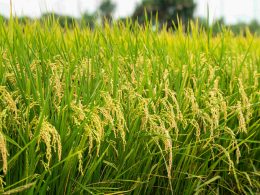Sri Lanka’s ambitious experiment to transition its agricultural sector to organic farming has ended in disaster, with the country facing a severe food crisis and widespread poverty.
The government’s decision to ban chemical pesticides and fertilizers in 2014 was meant to promote sustainable agriculture and reduce the country’s reliance on imported chemicals. However, the move has had devastating consequences, with tea plantations and other crops failing to thrive without the necessary inputs.
“We were told that organic farming would be a game-changer for our country,” said a tea plantation owner in the central highlands. “But now we’re struggling to make ends meet. Our crops are dying, and we’re forced to rely on expensive and unreliable organic alternatives.”
The crisis has been exacerbated by a severe drought that has affected the country’s main crop, tea. The drought has reduced tea production by over 20%, leading to a shortage of the country’s main export commodity.
“The government’s decision to ban chemical pesticides and fertilizers was a recipe for disaster,” said a local farmer. “We were not given the necessary support or training to transition to organic farming, and now we’re paying the price.”
The situation has become so dire that the government has been forced to import food to meet the country’s basic needs. The crisis has also led to widespread poverty and unemployment, with many farmers forced to abandon their land and seek work in other sectors.
“This is a disaster of epic proportions,” said a government official. “We never thought that our decision to ban chemical pesticides and fertilizers would have such devastating consequences. We’re doing everything we can to mitigate the crisis, but it’s going to take a long time to recover.”
The crisis has also had a significant impact on the country’s economy, with the value of the Sri Lankan rupee plummeting against the US dollar. The country’s main export commodity, tea, has also seen a significant decline in value, making it difficult for farmers to make a living.
“The government’s decision to ban chemical pesticides and fertilizers was a mistake,” said a local business owner. “We’re now facing a severe economic crisis, and it’s going to take a long time to recover.”
The situation in Sri Lanka is a stark reminder of the importance of careful planning and consideration when implementing policies that affect the agricultural sector. The country’s experiment with organic farming has ended in disaster, and it’s a cautionary tale for other countries that may be considering similar policies.
The crisis in Sri Lanka is a stark reminder of the importance of careful planning and consideration when implementing policies that affect the agricultural sector.









